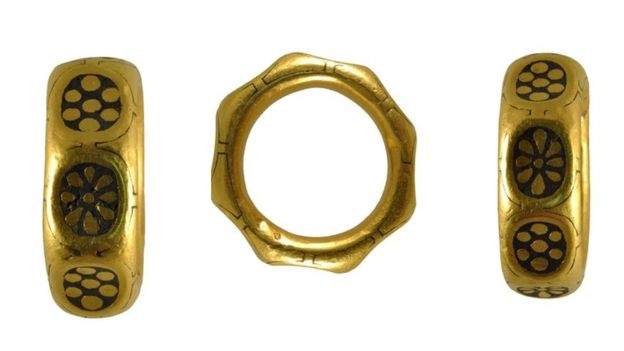Two metal detector enthusiasts originally from Wales (38-year-old George Powell and 51-year-old Layton Davies) were sentenced in first instance by Worcester Crown Court (a court analogous to our court of assizes) to 10 years in prison for the crimes of theft, conspiracy to conceal criminal property and conspiracy to convert criminal property. The facts date back to 2015, when Powell and Davies discovered in a field near the town of Leominster (eastern England, near the Welsh border) a collection of Viking coins and jewelry, dating from the 9th-10th centuries. Sentences were also handed down to a merchant, Simon Wicks (five years for him), while a second merchant, Paul Wells, will be tried on December 23: both were involved in the case.
Powell and Davies had failed to report the discovery to the authorities (English law gives fourteen days to report the discovery of objects that might be of cultural interest: in return, the state guarantees a hefty reward, judged by experts to be one of the most generous in the world), preferring to keep part of the collection for themselves as well as sell some of it. Investigators recovered about 30 coins, but from photographs on the convicted men’s cell phones it is believed that the collection amounted to about three hundred pieces. Despite searches, the rest of the collection has not yet been found.
The investigation started from a tip that came from the circles of the metal detector community. The two, moreover, also reportedly contacted the National Museum of Wales to report a very small part of the discovery (the two claimed one coin each and three pieces of jewelry). The concealed discovery represents an important find, and on the part of scholars and enthusiasts there is great regret that an important and unique collection has been lost due to criminal action. The British Museum’s curator of medieval numismatics, Gareth Williams, called the discovery “one of the most important, if not the most important” in the field of Viking history related to England. Indeed, scholars believe the collection could provide important information about a crucial period in the country’s history, that of the unification completed in the 10th century.
Pictured: one of the illicitly hidden Viking jewels.
 |
| England, discover treasure of Viking coins but keep it hidden: sentenced to 10 years in prison |
Warning: the translation into English of the original Italian article was created using automatic tools. We undertake to review all articles, but we do not guarantee the total absence of inaccuracies in the translation due to the program. You can find the original by clicking on the ITA button. If you find any mistake,please contact us.